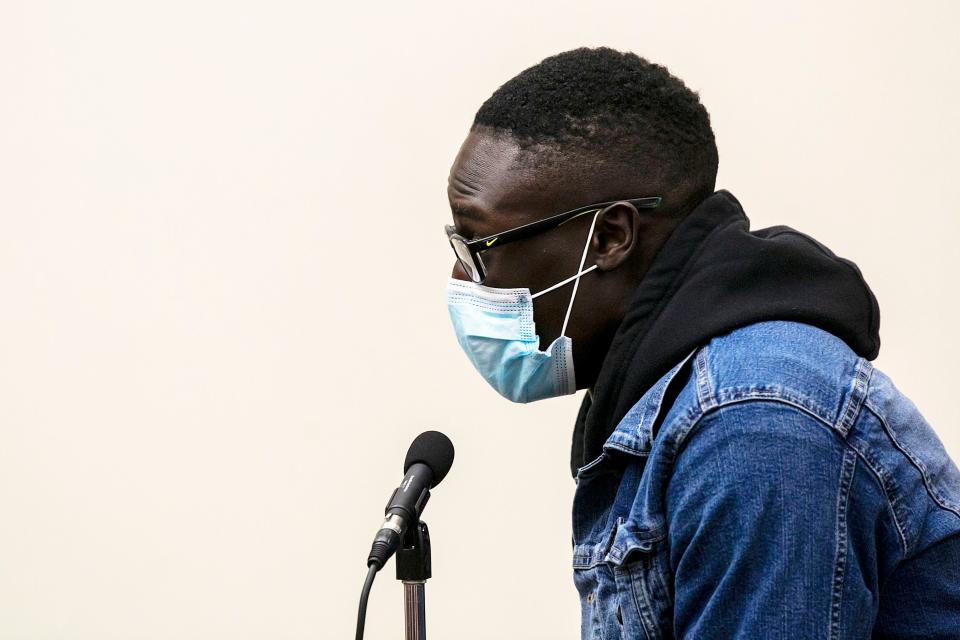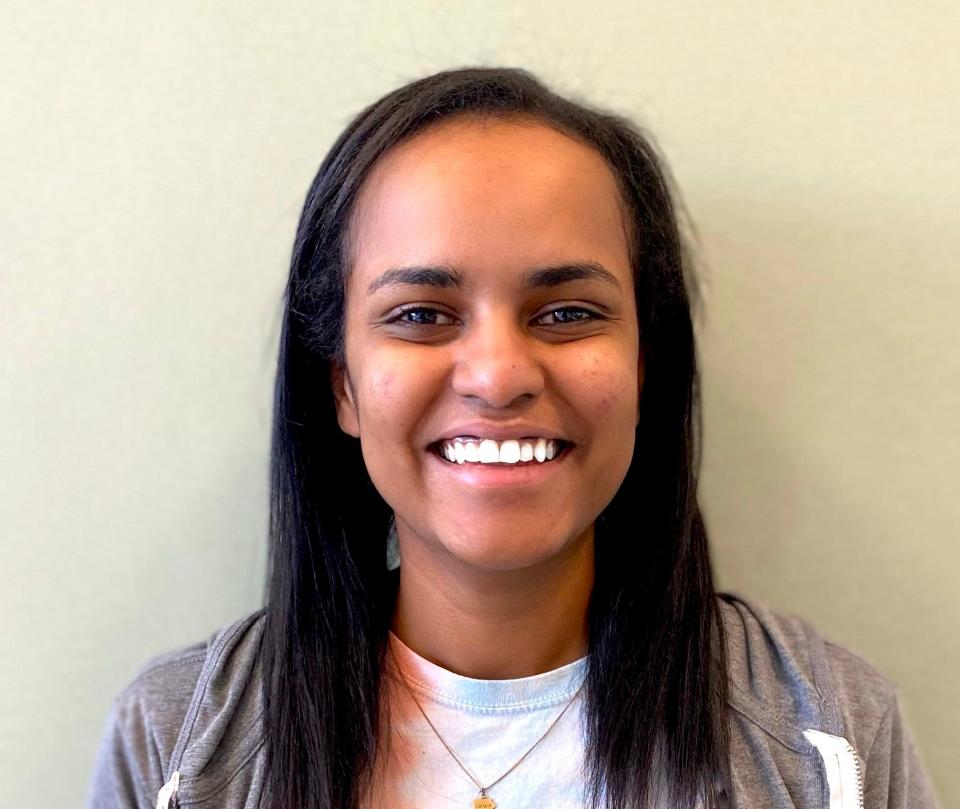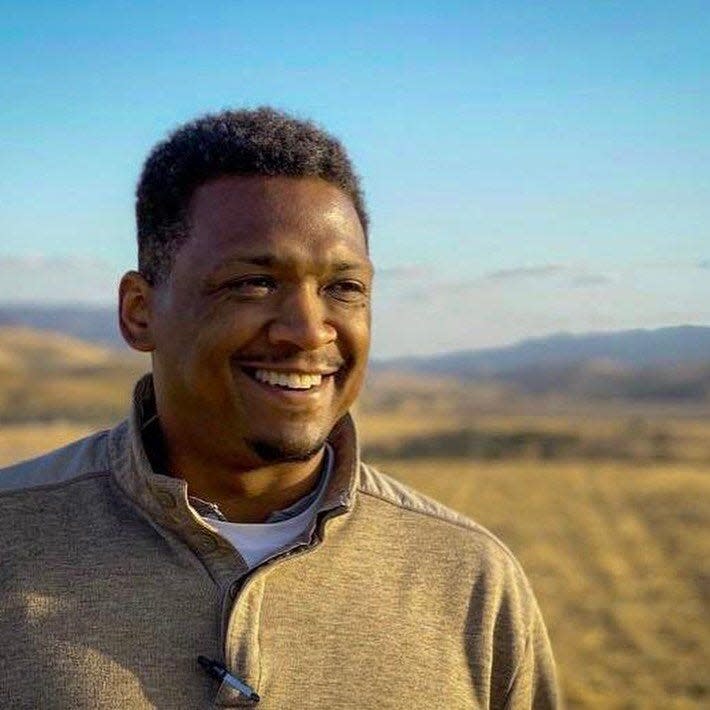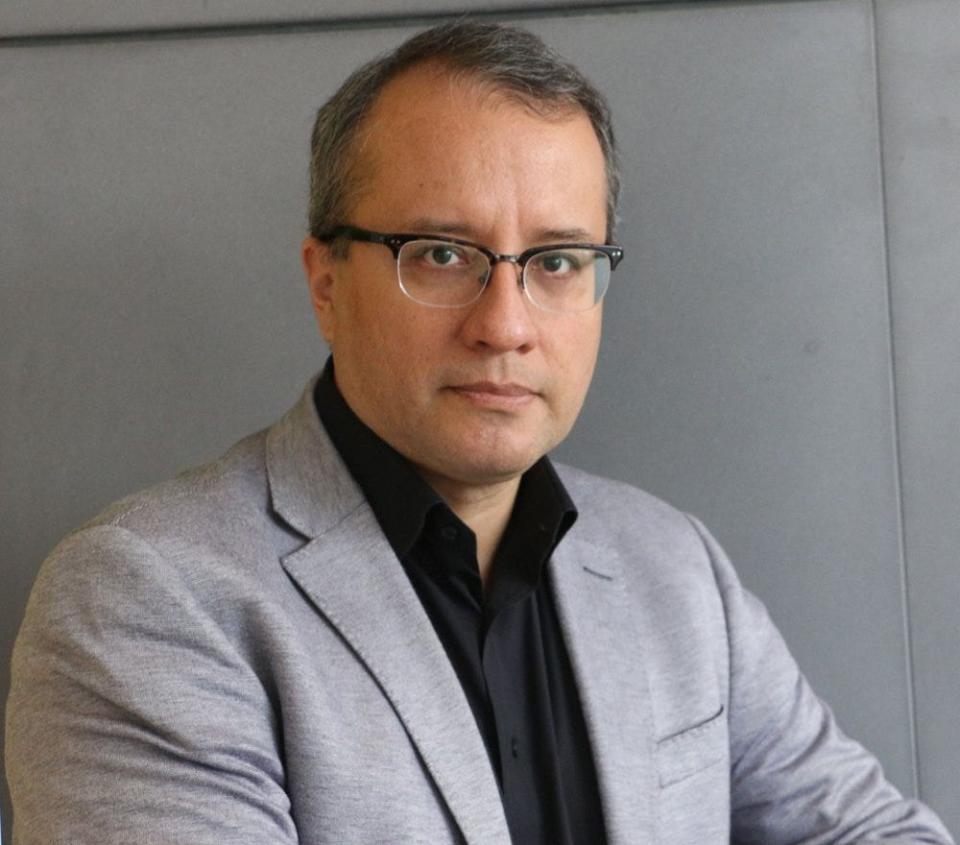Iowa City TRC Chair Mohamed Traore steps down as commission seeks to rework its mission
Iowa City Truth and Reconciliation Commission Chair Mohamed Traore announced he is stepping down from the leadership role that he has held for more than a year.
Traore provided a form of stability to the commission as its second chair when elected in March 2021 after a flurry of resignations led to a complete rework of the commission's makeup and, later, a one-month pause of its work.
But Traore doesn't plan on leaving the TRC. He plans to stay as a commissioner, keeping the nine-member panel whole for the foreseeable future.
Traore said that Vice Chair Amel Ali has largely run the TRC meetings in recent months as the group focused on hiring a facilitator. Ali helped lead this effort, which was the commission's main focus, but Traore retained the title of chair and sometimes used his influence to bring order to meetings or voice his opinion.
"It's probably been clear to everyone over the last six to seven months at this point, but Amel (Ali) has de facto been chair for quite a while," Traore said.
The TRC was created by the Iowa City Council in the aftermath of the summer 2020 protests after the death of George Floyd and is tasked with helping the city address racial injustice.

The TRC is working toward hiring a facilitator to help carry out its mission. It met Friday to hear a presentation from Eduardo Gonzalez and David Ragland from ThinkPeace, a nonprofit that lead efforts on truth, reconciliation, peacebuilding and trauma healing in the United States and internationally. The last proposal for a facilitator was put on pause by the team's Iowa City-based partner organizations and Friday's work session was meant to discuss what comes next.
Traore told his fellow commissioners that he thinks too much of his focus has been on the TRC rather than other important things in his life, something he said was made clear to him when he was arrested on a two-year-old charge by the Iowa City Police Department.
"It was that arrest, sitting in that cell, even though it was only for a few hours," he said.
Traore gave several reasons, mostly personal family matters and wanting to pursue career goals, as to why he is choosing to step down as chair.
"My interests are so much bigger than trying to do some things for racial injustice. It's also, how do we support family around here that need it and how do we keep kids in this community ... because I'm tired of seeing them all go over and over again," he said.
Traore said he thinks Ali is better-suited to lead the commission because he no longer thinks the TRC should be tied to city government.
"I didn't want to be the chair in the first place. I always wanted it to be you or (Commissioner Kevo Rivera)," Traore said to Ali.
"It's not that I don't think there is a future in (the TRC), I think that if the chair is me, that you're not going to get the full attention to the causes that you're looking for."

Ali told the Press-Citizen that, once Traore steps down, she would become chair for the time being but is seeking more information from city staff about if the commission would need to hold a vote for a new chairperson. She said she plans to hold a discussion with the commissioners about what to do next.
"I've already kind of been in this position, and I know that I am really invested in making (the TRC) work. The amount of time and energy I've put into learning about TRCs ... has really set me up to be in a good position to lead," she said.
Ali said the commission should consider a rotating chair over a six-month period. She said she would want to serve six months and then reevaluate whether she wants to continue being chair so one person doesn't bear the brunt of the commission's responsibility.
More: Race discrimination claims blocked in Iowa City 'walking while Black' lawsuit. What comes next?
Experts attempt to revitalize commission's mission
Gonzalez and Ragland were part of the last proposal for a facilitator with national firm Kearns and West and three partners from Iowa City-area organizations: Banjo Knits Empowerment, Astig Planning and the Mediation Services of Eastern Iowa.
Angie Jordan, Annie Tucker and V Fixmer-Oraiz, the three local partners who were part of the last proposal, were present but did not speak during the Friday work session. City Councilors Janice Weiner and Laura Bergus, who helped draft the original resolution creating the TRC, were also present.
Gonzalez and Ragland started by giving a history of TRCs in the world, ranging from commissions in Chile after the military dictatorship of Augusto Pinochet, South Africa after the apartheid system was torn down and other recent examples such as in Ferguson, Missouri, after the death of Michael Brown at the hands of police.
Gonzalez and Ragland said Iowa City's choice to create a truth commission is unique because it is seeking to reconcile a long history or wrongs that did not get brought up from a single event, such a massacre in Greensboro, North Carolina, where members of the Klu Klux Klan and neo-Nazis shot and killed five participants of a "Death to the Klan" march in the 1970s.

"For you guys ... the task is really not to be a discussion space, because it is not about the commissioners, it is about the survivors. We are going to provide a safe, respectful space for people who are harmed to come tell their stories," Gonzalez said.
Ali said the presentation helped simplify what the TRC's mission should be into three main things: fact-finding, then holding testimonials, and ultimately coming together to present a report to the City Council with its recommendations.
"We've all just been reading too far into this. It feels good to feel like we're on the same page now, especially in regards to what we're looking for," Ali said.
Commissioners look back on failures of social movements in Iowa City
Gonzalez and Ragland pointed out that past truth commissions were successful because they had a movement that formed to push for change.
While Iowa City's Truth and Reconciliation Commission was formed in response to the murder of George Floyd in Minneapolis by law enforcement, the social movement largely fizzled out over time and organizations like the Iowa Freedom Riders, which led protests, are rarely heard from anymore.
Gonzalez said it was valuable that activists demanded a truth commission and the city established the TRC, but a social movement to coincide with the commission's work is key. He said the value here is that Iowa City has already committed money to the TRC's work and has a legal document laying out its mission.

Ali and Traore pointed out that the social movements fizzled out in Iowa City for myriad reasons, but one particular instance ended up hurting the TRC. They said when the Iowa Freedom Riders established their own People's Truth and Reconciliation Commission, it had a negative effect on the city's TRC.
Ali said she learned a lesson from the TRC and doesn't want this commission to separate from the city. She said the PTRC was overtaken by white men airing their own grievances and political ideology
"All of the Black folks that were in that pulled out and said they didn't want to do it anymore," she said.
Ali said she thinks the Black people who were integral to starting the 2020 protests in Iowa City would be more accepting of today's TRC.
Traore also pointed out some of the damaging tactics used by protesters in 2020, such as spray-painting and smashing windows, were done by white people trying to speak on behalf of Black people and were damaging to the movement.
"It only took me going to one of those protests to see how that was going to end. I told them while they were spray-painting in the streets, doing what they were doing, 'You are going to ruin this for all of us,'" Traore said.
Traore said he doesn't blame the founders of IFR for the chaos at the start of the TRC and the impact the People's TRC had on the commission, but he only accepted the nomination as chair of the TRC is because he thought members of the IFR would be involved.
More: Police investigate shooting death of 3-year-old Coralville boy
What's next for the TRC? New chair says new proposal could be imminent
Ali said she thinks a new proposal could be imminent that focuses more on having local groups lead the team, rather than the last proposal that left much of the work to Kearns and West.
"In my heart of hearts, I really don't think that this commission can be successful without a local facilitator," Ali said.
Ali said she favors a proposal where ThinkPeace handles holding truth-telling and testimonies, the local partners handle reconciliation, and Kearns and West could be used for the fact-finding and report.
"I hope that that is the general direction where commissioners will want to see this go. I think this idea simplifies it," she said.
More: 'Founding mother' of Iowa City abortion clinic saddened, not surprised, by overturn of Roe v. Wade
George Shillcock is the Press-Citizen's local government and development reporter covering Iowa City and Johnson County. He can be reached at (515) 350-6307, GShillcock@press-citizen.com and on Twitter @ShillcockGeorge
This article originally appeared on Iowa City Press-Citizen: Mohamed Traore to step down as Iowa City TRC chair, stay on commission

